Posted in: 09/27/2022
“ Territorios: Metropolises in the forest ”, the fourth volume of the Series “Brazilian Amazon: Integrated Territorial Perspectives and Vision of the Future” , has just been released.
Produced by Centro de Estudos Synergia , the publication continues the discussions started in the three previous volumes, and was dedicated to indigenist Bruno Pereira and journalist Dom Phillips – murdered in the Amazon in the same period in which the edition was prepared.
Having already discussed the territories of consolidated occupation , the arc of deforestation and the conserved area , the series now makes room for the urbanization process of cities and metropolises , bringing to light some perspectives on these territories and their roles in the dynamics and trends of Brazilian Amazon.
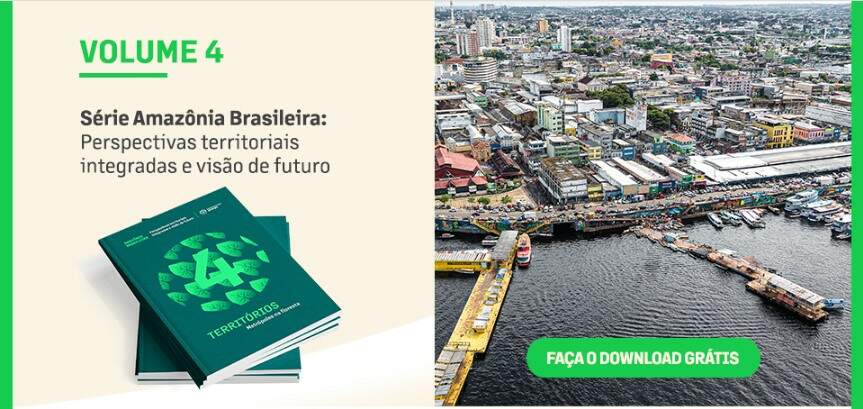
Officially, only Belém and Manaus are recognized as metropolitan areas in the Legal Amazon. Advancing, therefore, in the analysis of their capitals and in the urbanization process of the Amazon , without exhausting the multiplicity of aspects of the urban field, is essential to understand the macro trends of change in the use and occupation of the soil in the Amazonian territory.
To pursue this objective, the Centro de Estudos Synergia, through Volume 4, added some elements in understanding the complexity of the Amazonian territory , often recognized in the national, non-Amazonian common sense, as a territory of domain of the forest or agricultural landscape , but which has a rapid, recent, powerful and complex urbanization process, in addition to being problematic in several aspects.
In addition to bringing the demography of the nine capitals of the Legal Amazon (table below), the edition also focuses on fundamental aspects of the region, such as the incidence of subnormal agglomerations , the problem of sanitation and violence .
The publication also features a specific chapter dedicated to the Manaus Free Trade Zone, its economic model and its impact on the development of the region.
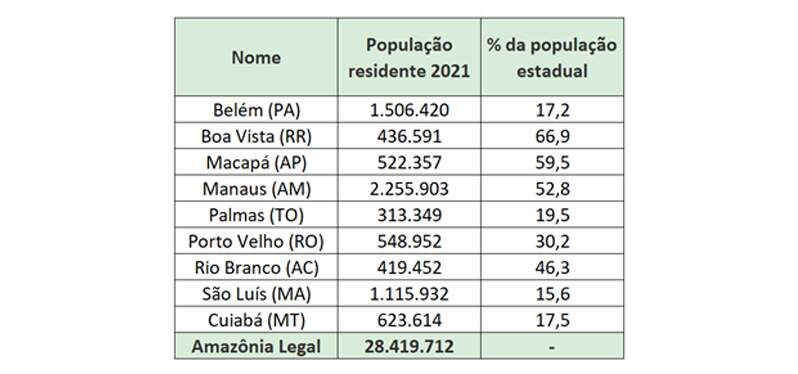
In addition to official data and analyzes about the metropolises in the forest and the territory as a whole, Volume 4 again amplifies the reports and assessments through the collaboration of representatives of the region .
The chapter “ Vozes da Amazônia ” brings the narrative of Kelvyn Gomes, from Vila da Barca, in Pará, and Heitor Pinheiro, from Manaus. Knowing the history of Vila da Barca, the largest set of stilt houses in Latin America , located on the shores of Baía do Guajará, in Belém (PA), is a journey into the universe of women, men, black people, indigenous people, people and families who struggle to survive and have their rights recognized.
Kelvyn Gomes , a resident of Vila da Barca, leads us to better understand the genesis of the place , its main problems, difficulties and challenges, but mainly its political, economic and social potential .
Reading the text by Heitor Pinheiro , a geographer who works at Fundação Vitória Amazônica and is part of the Observatório da Região Metropolitana de Manaus (ORMM) and the initiative Uma Concertação pela Amazônia, leads to an understanding of the Metropolitan Region of Manaus , with its sub-regions and centralities.
Heitor points out the importance of strengthening local production chains , Conservation Units and Indigenous Lands as key elements in combating illegal deforestation and maintaining biodiversity, capable of forming a green shield around the urbanized area.
Do you want to know more about the territory and better understand the specificities that constitute it?
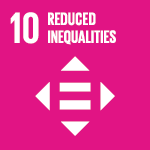
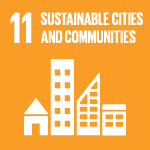
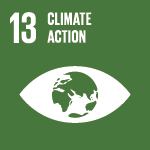
Sign up and receive our news.